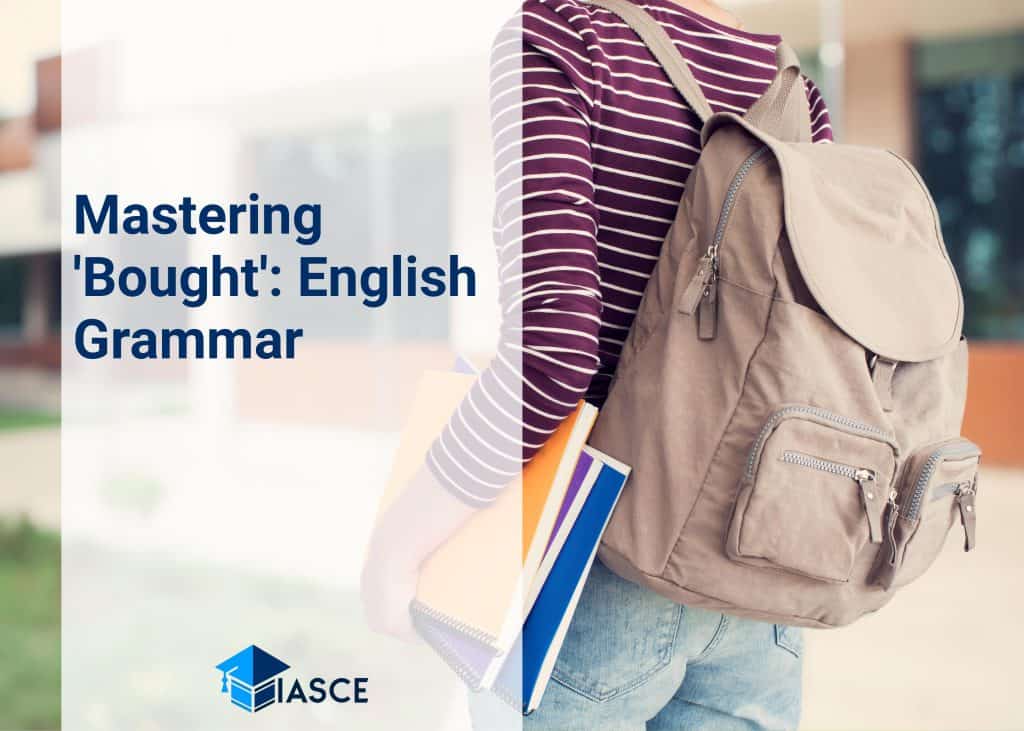If you’ve ever found yourself pondering the past tense of the word ‘buy’, I’m here to settle that query. The answer is simple: bought. It’s one of those tricky irregular verbs that doesn’t follow the standard conjugation rules in English, which can cause confusion for ESL learners and even native speakers.
Now, you might be wondering why it’s important to master this aspect of English grammar. Understanding verb tenses, especially irregular ones like ‘buy’, significantly improves your overall communication skills. This knowledge allows you to express actions or states at various times with precision and clarity.
So, let’s dive deeper into how we use ‘bought’ correctly in different sentences and contexts. You’ll also discover some common mistakes to avoid when using this past tense verb!
Understanding the Past Tense of ‘Buy’
Let’s dive right into the topic at hand: the past tense of ‘buy’. This is a common verb we use daily, but surprisingly, many people struggle with its correct usage in past tense. The past tense of ‘buy’ is simply ‘bought’.
It’s important to note that ‘buy’ is an irregular verb; this means it doesn’t follow regular conjugation patterns. In English, regular verbs take ‘-ed’ or ‘-d’ at the end to form their past tense and past participle forms. But as you can see with ‘buy’, it jumps from one vowel sound to another, skipping over any hint of an ‘-ed’.
You might wonder why there’s such a drastic change from ‘buy’ to ‘bought’. That’s because English has inherited its words from different languages over centuries and each language had its own way of forming tenses.
To help visualize this distinction better, let’s see some examples:
| Present Tense | Past Tense |
|---|---|
| I buy | I bought |
| You buy | You bought |
| He buys | He bought |
So next time when you’re about to say “I buyed a new car”, catch yourself and remember it should be “I bought a new car”.
The same rule applies no matter what pronoun you’re using – whether it’s I, you, he, she, we or they – ‘bought’ remains constant. So keep practicing until it becomes second nature! And while we’re on this subject, don’t forget that the future tense of ‘buy’ would be ‘will buy’. That stays consistent across all pronouns too!
In my experience as an expert in English grammar, I’ve found that practice truly makes perfect when mastering these tricky words. Reading often also helps because you’ll encounter these words in context which reinforces your understanding.
But let’s focus on one step at a time – for now just remember: the past tense of ‘buy’ is always and only ever going to be ‘bought’. Happy learning!
Common Errors and How to Avoid In Using the Past Tense of ‘Buy’
One of the most common mistakes that I’ve noticed people making with the past tense of “buy”, which is “bought”, is confusing it with other similar sounding words like “brought”. They’re easy to mix up, but one pertains to purchasing something (buy/bought) while the other refers to carrying or taking something somewhere (bring/brought).
To avoid this confusion, here’s a trick: remember that “buy” and “by” both contain a “y”, whereas “bring” and “brought” do not. It’s small, but it can help you keep these terms straight in your head.
Another error some folks stumble over involves using the incorrect form when talking about an event from long ago. For instance, you might hear someone say “I buyed this car ten years ago“. The correct phrase should be “I bought this car ten years ago“. The word ‘buyed‘ doesn’t exist in English grammar. When discussing past events, always use “bought“.
Let’s also discuss another sneaky pitfall – mixing up verb tenses within sentences. If you start your sentence in past tense, stick with it throughout. Don’t switch between past and present tense.
Incorrect: “Yesterday, I buy groceries after work” Correct: “Yesterday, I bought groceries after work“
Here are few more examples:
- Incorrect: “Last year on my birthday, my friends buys me a gift“
- Correct: “Last year on my birthday, my friends bought me a gift“
Avoiding these common errors can drastically improve your English grammar skills! Remember our discussion today every time you talk about purchases from the past – it’ll ensure that you’re always using ‘buy’ correctly!
Conclusion: Mastering the Grammar with ‘Bought’
To truly master any language, it’s vital to understand its grammar and usage rules. One word that often confuses English learners is the past tense of ‘buy’. But I’m here to shed light on this tricky verb and make your journey towards English mastery a bit smoother.
The correct past tense of ‘buy’ is ‘bought’. It’s important to remember this when writing or speaking in English. Let’s look at some examples:
- Yesterday, I bought a new book.
- Have you bought your tickets for the concert?
- They hadn’t bought enough food for the party.
See how ‘bought’ replaces ‘buy’ in each sentence when talking about a finished action? That’s because ‘bought’ indicates an action that has already taken place – a key aspect of past tense usage in English.
It might seem overwhelming at first, especially given all the irregular verbs in English. But practice makes perfect! Here are some tips to aid your learning:
- Make flashcards with verbs and their past tenses
- Use online resources for additional practice exercises
- Read books or articles in English regularly
Remember, language mastery doesn’t happen overnight – but with consistent effort and practice, you’ll find yourself using ‘bought’ naturally and correctly before long!
In conclusion, mastering word usage like the past tense of ‘buy’ can be challenging but rewarding as well. So keep practicing! With time and patience, you’ll become more comfortable with these grammatical nuances – making your English communication clearer and more effective overall.

